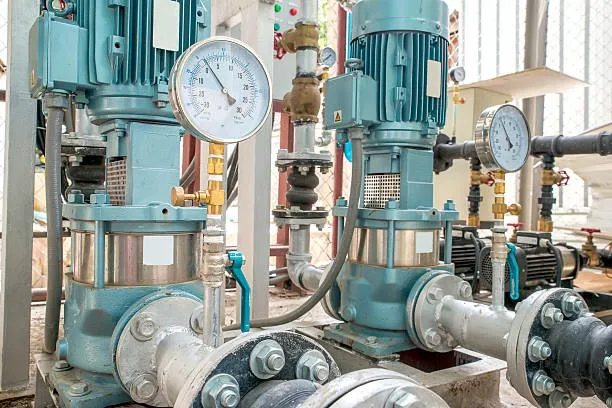
Boiler Maintenance in Neffsville, PA
Keeping your boiler running safely and efficiently is essential in Neffsville, where cold Lancaster County winters put heavy demand on home heating systems. Regular boiler maintenance prevents breakdowns during peak season, improves efficiency, and extends equipment life — especially in older, hydronic-heated homes common to this area.
Why routine boiler maintenance matters in Neffsville homes
Neffsville experiences long heating seasons, occasional freezing temperatures, and hard water that can accelerate scale and corrosion in boilers and hydronic loops. These regional factors increase the need for annual inspections and, in some cases, additional water treatment or more frequent servicing. Timely maintenance:
- Keeps systems running safely and reduces carbon monoxide risk
- Restores fuel-to-heat efficiency, lowering monthly energy costs
- Reveals small problems before they become emergency repairs
- Preserves components like pumps, controls, and heat exchangers to extend usable life
Common boiler problems in Neffsville, PA
Many local homes face similar issues due to older installations and heavy seasonal use:
- Inefficient combustion or soot buildup on burners
- Low system pressure or leaking near valves and joints
- Corrosion and scale from hard water in radiators and heat exchangers
- Failing circulator pumps or noisy expansion tanks
- Thermostat or control calibration drift causing uneven heat
- Clogged condensate traps or blocked flues in high-efficiency units
- Carbon monoxide leaks from cracked heat exchangers or flue faults
What a professional boiler maintenance visit includes
A comprehensive annual tune-up addresses safety, efficiency, and reliability. Technicians follow a step-by-step inspection and service checklist tailored to the boiler type (gas, oil, or high-efficiency condensing) and the home’s hydronic setup.
Typical maintenance tasks:
- Visual and mechanical safety inspection: check for corrosion, visible leaks, damaged flue, and proper clearances
- Combustion and flue analysis: measure CO, O2, and combustion efficiency; inspect flue termination and draft
- Burner and heat exchanger cleaning: remove soot and scale to restore heat transfer
- Fuel and ignition system check: test pilot, ignition control, valves, and safety shutoffs
- Pressure, temperature, and expansion system checks: verify system pressure, relief valve operation, and expansion tank condition
- Circulator pump and valve service: inspect bearings, check flow rates, and lubricate where applicable
- Control and thermostat calibration: ensure setpoints, aquastat, and zone controls respond accurately
- Water quality and boiler chemistry review: look for scale, corrosion, and recommend treatment or flushing if needed
- Condensate and drainage inspection (for condensing boilers): clean traps and verify proper neutralization/drainage
- Carbon monoxide test and ventilation assessment: measure CO at the appliance and assess home ventilation pathways
- System performance report: document findings, efficiency readings, and recommended corrective actions
Each check is performed with safety and longevity in mind. For older systems or homes with known water-hardness issues, technicians often recommend additional steps such as power-flushing radiators or adding corrosion inhibitors.
Diagnostic testing and efficiency verification
Professional maintenance goes beyond simple visual checks. Technicians use combustion analyzers to confirm the boiler burns fuel efficiently and safely. Pressure and flow diagnostics ensure each heating zone receives the correct circulation. These measurements help determine whether components are wearing out or if scale buildup is reducing heat transfer—common causes of rising fuel bills and poor performance.
Repairs and solutions commonly recommended after inspection
When maintenance uncovers issues, common solutions include:
- Burner adjustment or replacement for poor combustion
- Heat exchanger cleaning or evaluation for cracks (safety priority)
- Circulator pump replacement or rebuild for noisy or underperforming pumps
- Valve and pressure relief replacement for persistent leaks or pressure faults
- Power-flush or partial system flush to remove sediment and restore flow
- Installation of water treatment or inhibitors to reduce scale and corrosion
- Upgrading controls or thermostats for improved zoning and efficiency
Technicians prioritize safety repairs (like combustion or flue issues) and present efficiency or longevity fixes that avoid future emergencies.
Suggested service intervals for Neffsville systems
- Annual comprehensive inspection and tune-up: recommended for most boilers, especially older units or homes with hard water
- Biannual checks: consider for high-use systems, multi-zone hydronic systems, or boilers with a history of issues
- Mid-season quick check: useful for homes with frequent temperature swings or recent repairs
- Post-installation follow-up: new or replaced boilers benefit from a break-in inspection after the first heating season
Benefits of joining a maintenance plan
A structured maintenance plan turns one-time service into ongoing protection. Typical plan features (varies by provider) include:
- Scheduled annual or semi-annual tune-ups timed before heavy-use months
- Priority service for breakdowns during peak season
- Routine filter and small-part replacement to prevent avoidable wear
- Seasonal efficiency checks and unchanged records for warranty compliance
- Discounts on repairs and replacement parts
- Documentation useful for home resale and insurance verification
For Neffsville homeowners, a maintenance plan is especially valuable because it aligns service timing with local weather patterns and reduces the risk of winter emergencies.


Enjoy flexible financing options that make upgrading or repairing your HVAC system easy and budget-friendly.










